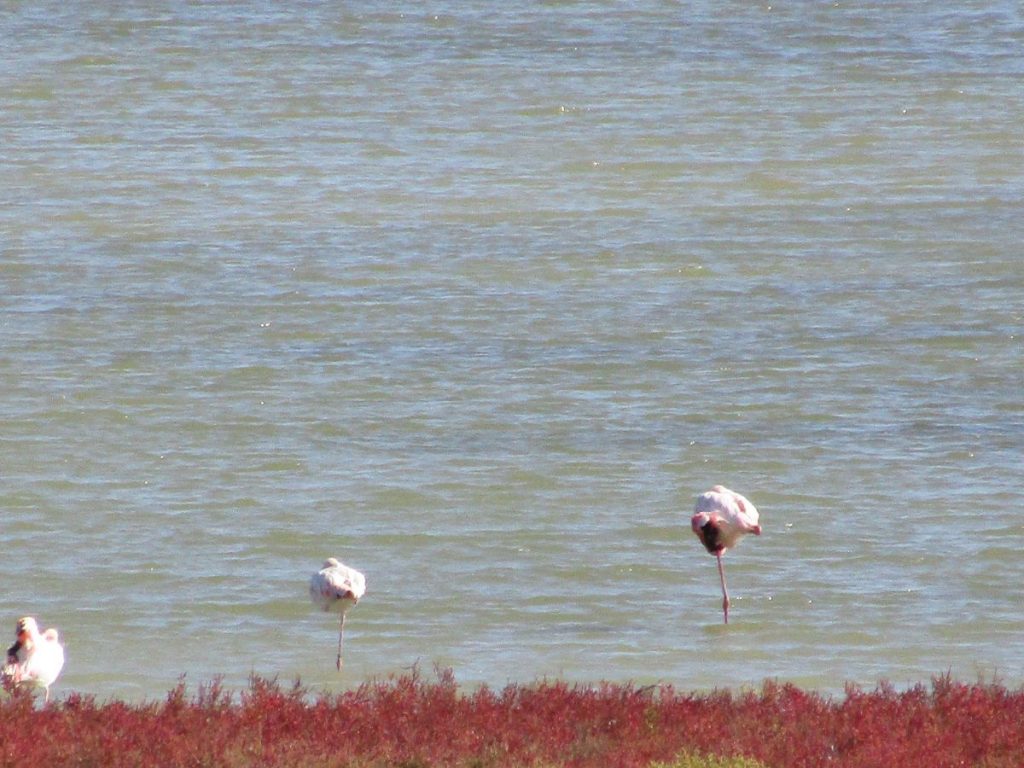|
Audio Version
Getting your Trinity Audio player ready...
|
I recently interviewed Núria Pou on my YouTube channel. She is an ecologist and biodiversity expert who was one of the coordinators of a report published in 2020 on the state of the natural habitat in the region where Planeta Sana is based: Catalonia.
This interview opens our eyes on the many misconceptions we have about what is good or bad for nature, on the changes we can make in terms of consumption and lifestyle, and even on the small steps we can take to actively protect biodiversity!
Why is biodiversity so important?
This is one of the first questions we asked Núria, to help the public understand what we are taught in courses about biodiversity.
The climate crisis we are experiencing is largely due to CO2 emissions. Núria does not underestimate the importance of its management, on the contrary. She explains in her interview that you have to think about it when you want to deal with a subject as complex as forest management, as she works for the Forestal Center of Technology and Science of Catalonia.
But what’s interesting to remember (and deep down we already know this) is that it’s important to reconnect with nature.
And when we say “reconnect”, we don’t mean taking a stroll in the woods. It may help to understand, but it will not solve the problem.
The important thing to remember is that every little living being on earth has a function. Every little flower, tree, insect, animal has its place in the ecosystem and plays a major role in maintaining the natural balance.
If this balance is compromised, a “domino effect” of consequences ensues, which is much more serious than one might imagine.
We do not necessarily realize that when we drink water from the tap, it is possible not only because of the treatments it is given, but also and above all thanks to biodiversity – because it makes this water naturally “treatable” and then consumable.
Biodiversity also allows trees to flourish, as well as other things, as Núria explains when she talks about bees.
Therefore, this diversity of species allows us to eat and drink, it is the essence of our existence. And believing that technology alone will allow us to achieve these goals is very naive.
She also talks about the importance of balance.
Certain diseases or types of pollution exist because key predators have disappeared or because invasive species have killed off native species.
How our lifestyle and our consumption are helping biodiversity to recover?
It’s actually very easy to understand.
Núria explains these observations to us: some 25% of biodiversity has been lost in Catalonia, and the causes are linked to human activity.
Human activity being mainly urbanization and farming methods.
She explains that the proximity of our habitats and activities to the Posidonia, one of the areas most affected by the loss of biodiversity, have impoverished marine biodiversity.
So when you choose to rent or buy a house less than a kilometer from the coast, or you decide to do a motorized activity at sea too close to the coast, be aware that it can threaten the well-being of biodiversity.
She also reminds us that traditional farming and breeding have made it possible to have grasslands that are important for biodiversity, especially for certain birds and butterflies.
90% of butterflies have disappeared since traditional farming was abandoned and replaced by intensive farming.
What we decide to put on our plate has therefore a significant impact because it will allow a type of agriculture to either flourish or die out.
It is also important to emphasize that the closer a food is to us, the more its nutritional value is preserved. Equally, the more we eat seasonal products, the more their vitamins meet our needs at that particular time of year. Nature is smart and produces what we need, when we need it, if we respect and preserve it.
Our biased ideas on biodiversity
A topic that may also have surprised us is the huge loss of biodiversity when traditional farmers left the land and were replaced by young forests.
That 90% of butterflies have disappeared as a direct result of the disappearance of these farms is not something we would expect. We often hear of the terrible effects of the consumption of animal products and classify it as being bad for the environment, but we forget that traditional farming practices make it possible to keep the land fertile and that both enrich biodiversity – something totally incomprehensible to certain defenders of animal rights.
But it is nevertheless a fact. What is bad for nature is not traditional and respectful farming but intensive and abusive breeding.
This is the real battle to be fought. It’s important to rethink the way we eat: we do not need so many animal products. Perhaps by consuming in a more balanced way, with more seasonal and local fruits and vegetables, we will restore our health.
It is not the quantity of products that matters, or their exclusivity or exoticness (the so called “superfoods”, for example), but the quality, accessibility and proximity of them.
Another aspect of the interview that may have also challenged popular beliefs is that not all forests provide the same benefits to nature. Some forests are useless, and it would be wiser to have meadows in order to allow certain animals and insects to have spaces and habitats suitable for their development.
This is why forest management is a very complex issue, and why sometimes it is better not to plant young forests but to allow older forests that provide huge ecosystem services to thrive.
Being an actor for biodiversity: it’s easy!
Núria is above all someone who observes nature – for it is by observing it that you can understand it and learn what threatens it and what helps it to thrive.
Therefore, she tells us we can register on observation platforms and scientists use citizen observations to help them advance in the protection of biodiversity and the environment.
Watching birds from your window or while out walking, alerting about invasive species like tiger mosquitoes, are easy things to do that greatly help scientists protect our planet and our health!
If you want to know more about this interview, I invite you to watch it on our new YouTube channel. It is in Spanish, but you can put on the English subtitles that have been translated by native English speakers and added manually (days of work in the name of educating about biodiversity!).
If you prefer, we’ve transcribed the whole interview on World Travel Able blog.
Find out why biodiversity is important with Núria Pou [interview]
If you want to be part of our community, do not hesitate to join our Facebook group, follow our Instagram page, and subscribe to our future newsletter. You can also leave us a comment below or share this article with those around you!


This is a great initiative and is actually the need of the hour. Thank you for creating awareness and addressing such a critical subject. Great work!
This is so, so important. Thank you for posting about this. I hope that your message spreads far and wide because biodiversity is crucial to our planet and there are things we do every day that affect it. Sometimes all we need to do is be just a little bit more conscientious.
The loss of biodiversity is such a tragedy of our day. I appreciate how much detail you go into about the importance of maintaining diversity on our planet and how it affects us as a species. I applaud your efforts for perpetuating conservation for a better world!